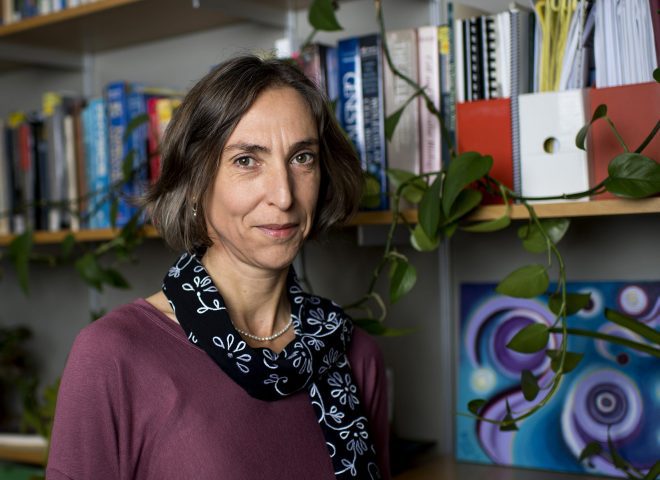Mineralized tissue research: Tooth enamel and dentin
Teeth are remarkable in that they are formed to last for a lifetime to withstand extreme variations of temperature, acidity and mechanical stress. Advanced engineering approaches attempt to mimic the natural makeup of teeth, with a very hard shell on a softer core that is anchored in the jaw. In addition, during their formation time, teeth record a person’s health history and environmental exposures. This makes teeth a unique, individualized biomarker that offers a gateway to precision medicine.
The exceptional tooth enamel property of extreme hardness without being brittle is achieved by having mineral crystals arranged in an intricate pattern with small amounts of protein retained. When this balance of protein and mineral distribution is disrupted during tooth development, enamel becomes weak and susceptible to microbial decay, acid dissolution, or mechanical failure such as chipping off.
In the Bidlack lab we focus on understanding how genetic background and interaction with the oral environment determines and changes the composition and properties of enamel. Since there is no cellular mechanism of repairing enamel after tooth eruption, our lab and researchers at the Forsyth Institute seek to develop and apply alternative mechanisms of repair.

Lab Alumni
Postdocs:
Nelson Monteiro
Gemma Cotton
Ana Gil de Bona
Baptiste Depalle
Daniel Green
Dan Faibish
Maren Teichmann
Doctoral Trainees:
Li Zhen
DMSC Students:
Yasmin Alayyoubi
Jae Jang
Yu-Chun Lin
Graduate Scholar Interns:
Aziz Biyari
Omar Elrayah
Nasser Mohieddin
Nicolas Obtel
Undergraduate Interns:
Soultana Tsaparlis
Sharan Shah
Joseph Marsallo
Mariel Sackman
Research Technicians:
Jiyoon Kim
Gabrielle Mascarin
Yan Xia
Highschool Interns:
Jens Feugmann
Lucia Tejera Vicente
